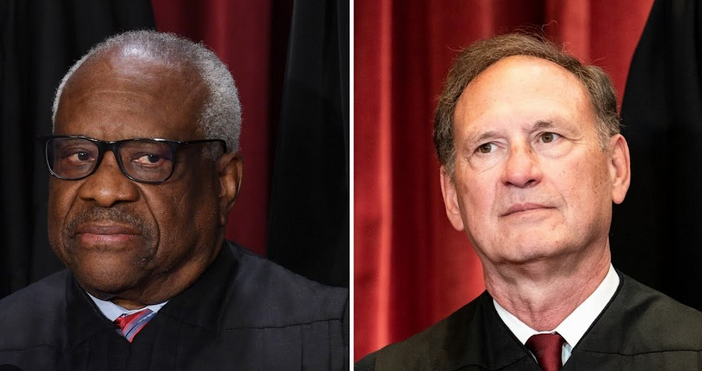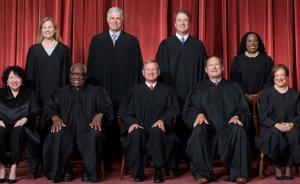| Photos: YouTube Screenshots The U.S. Supreme Court announced Monday that the justices will subject themselves to a code of ethics. It is, in some ways, welcome news.
|
| But the code comes with a whiff of condescension. The justices only took this step, they explain, because of some “misunderstanding” by the public about their probity. It’s not accountability — it’s the appearance of accountability. The Supreme Court has been the only court in the country without a binding ethics code. Now it has one of the country’s weakest.
These new rules are more loophole than law. |
| The idea behind an ethics code is simple: nobody is wise enough to be the judge in their own case. Yet the justices will still judge themselves. There is no mechanism to enforce the code — no arbiter to enforce, apply, or even interpret these rules. And the Brennan Center and other reformers have urged a variety of possible ways to do this. One idea is to bring in retired judges to advise on or even decide issues. There are other ideas as well. This code adopts none of them. |
| The rules themselves are weak.
Consider recusal, when justices step aside from considering a case. The justices took the rule that applies to lower court judges but then inserted a handful of new loopholes, including one that could be so big that it swallows the rule — basically allowing a justice to disregard a required recusal if they think their vote is needed in the case. And the financial disclosure rules haven’t tightened at all — a significant shortcoming, since the justices have proven themselves troublingly adept at sidestepping the current rules, whether for RVs, tuition, fishing trips, or real estate deals. |
| If the Court is to hold itself to the highest ethical standards, as Chief Justice John Roberts has repeatedly said is his aim, the justices must do more. Real financial transparency. Recusal whenever a conflict of interest creates the appearance of bias. Most importantly, an external body to tell us when a justice has fallen afoul of the rules. That’s what checks and balances are all about. |
| Still, this is a big moment. Public trust in the Court has collapsed to the lowest level ever recorded. The Senate Judiciary Committee was on the verge of issuing subpoenas to Harlan Crow, Clarence Thomas’s benefactor. Lawmakers were making noise about passing an ethics code if the justices did not act first. Public pressure can matter. |
| There were hints in the explanatory essay that accompanied the rules that there may be more to come. Let’s hope so. The Supreme Court faces a historic crisis of legitimacy, one of the justices’ own making.
Monday’s code of ethics is the Court’s opening bid — the bare minimum to pacify an angry public. Let’s keep up the pressure.
|









